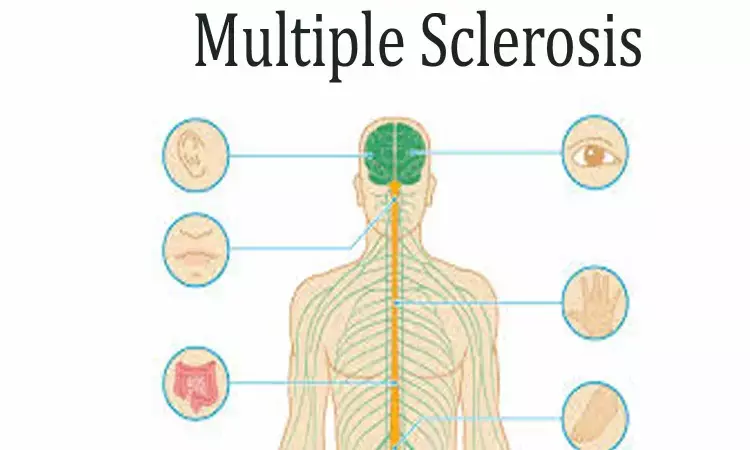- Home
- Medical news & Guidelines
- Anesthesiology
- Cardiology and CTVS
- Critical Care
- Dentistry
- Dermatology
- Diabetes and Endocrinology
- ENT
- Gastroenterology
- Medicine
- Nephrology
- Neurology
- Obstretics-Gynaecology
- Oncology
- Ophthalmology
- Orthopaedics
- Pediatrics-Neonatology
- Psychiatry
- Pulmonology
- Radiology
- Surgery
- Urology
- Laboratory Medicine
- Diet
- Nursing
- Paramedical
- Physiotherapy
- Health news
- Fact Check
- Bone Health Fact Check
- Brain Health Fact Check
- Cancer Related Fact Check
- Child Care Fact Check
- Dental and oral health fact check
- Diabetes and metabolic health fact check
- Diet and Nutrition Fact Check
- Eye and ENT Care Fact Check
- Fitness fact check
- Gut health fact check
- Heart health fact check
- Kidney health fact check
- Medical education fact check
- Men's health fact check
- Respiratory fact check
- Skin and hair care fact check
- Vaccine and Immunization fact check
- Women's health fact check
- AYUSH
- State News
- Andaman and Nicobar Islands
- Andhra Pradesh
- Arunachal Pradesh
- Assam
- Bihar
- Chandigarh
- Chattisgarh
- Dadra and Nagar Haveli
- Daman and Diu
- Delhi
- Goa
- Gujarat
- Haryana
- Himachal Pradesh
- Jammu & Kashmir
- Jharkhand
- Karnataka
- Kerala
- Ladakh
- Lakshadweep
- Madhya Pradesh
- Maharashtra
- Manipur
- Meghalaya
- Mizoram
- Nagaland
- Odisha
- Puducherry
- Punjab
- Rajasthan
- Sikkim
- Tamil Nadu
- Telangana
- Tripura
- Uttar Pradesh
- Uttrakhand
- West Bengal
- Medical Education
- Industry
New MRI technique could improve diagnosis and treatment of multiple sclerosis

It is important that multiple sclerosis (MS) is diagnosed and treated as early as possible in order to delay progression of the disease. The technique of Magnetic resonance imaging (MRI) plays a key role in this process. In the search for ever better methods, a new MRI technique has been used at MedUni Vienna as part of a research project that could pave the way to quicker assessment of disease activity in MS. The study was conducted by a research team led by Wolfgang Bogner at MedUni Vienna's Department of Biomedical Imaging and Image-guided Therapy and was recently published in the leading journal "Radiology".
Multiple sclerosis is a disease of the central nervous system that manifests itself in changes (lesions) primarily in the brain. As yet, there is no cure for MS, but it can be effectively treated. Early diagnosis is critical to the prognosis, with highly detailed imaging techniques playing a major role. Although conventional MRI can detect brain lesions, scientists are researching methods to detect the changes at an earlier microscopic or biochemical stage. The method known as proton MR spectroscopy has been identified as a promising tool for this purpose.
Using this technique, the research group led by Eva Niess (formerly Heckova) and Wolfgang Bogner from MedUni Vienna's Department of Biomedical Imaging and Image-guided Therapy, working with scientists from MedUni Vienna's Department of Neurology, went one step further in their recently published study. The team used MR spectroscopy with a 7-tesla magnet to compare the neurochemical changes in the brains of 65 MS patients with those of 20 healthy controls. This particularly powerful imaging tool was co-developed by MedUni Vienna researchers and has been used for scientific studies, e.g., of the brain, at MedUni Vienna's Center of Excellence for High-Field MR since it was commissioned in 2008.
"If the results are confirmed in further studies, this new neuroimaging technique could become a standard imaging tool for initial diagnosis and for monitoring disease activity and treatment in MS patients," says Wolfgang Bogner, looking to the future. The method is currently only available on the only 7-Tesla MRI scanner in Austria at MedUni Vienna and only for research purposes. However, the scientific team led by Eva Niess and Wolfgang Bogner is working on refining the new method for use in routine clinical MRI scanners.
https://pubs.rsna.org/doi/10.1148/radiol.210614
Hina Zahid Joined Medical Dialogue in 2017 with a passion to work as a Reporter. She coordinates with various national and international journals and association and covers all the stories related to Medical guidelines, Medical Journals, rare medical surgeries as well as all the updates in the medical field. Email: editorial@medicaldialogues.in. Contact no. 011-43720751
Dr Kamal Kant Kohli-MBBS, DTCD- a chest specialist with more than 30 years of practice and a flair for writing clinical articles, Dr Kamal Kant Kohli joined Medical Dialogues as a Chief Editor of Medical News. Besides writing articles, as an editor, he proofreads and verifies all the medical content published on Medical Dialogues including those coming from journals, studies,medical conferences,guidelines etc. Email: drkohli@medicaldialogues.in. Contact no. 011-43720751


